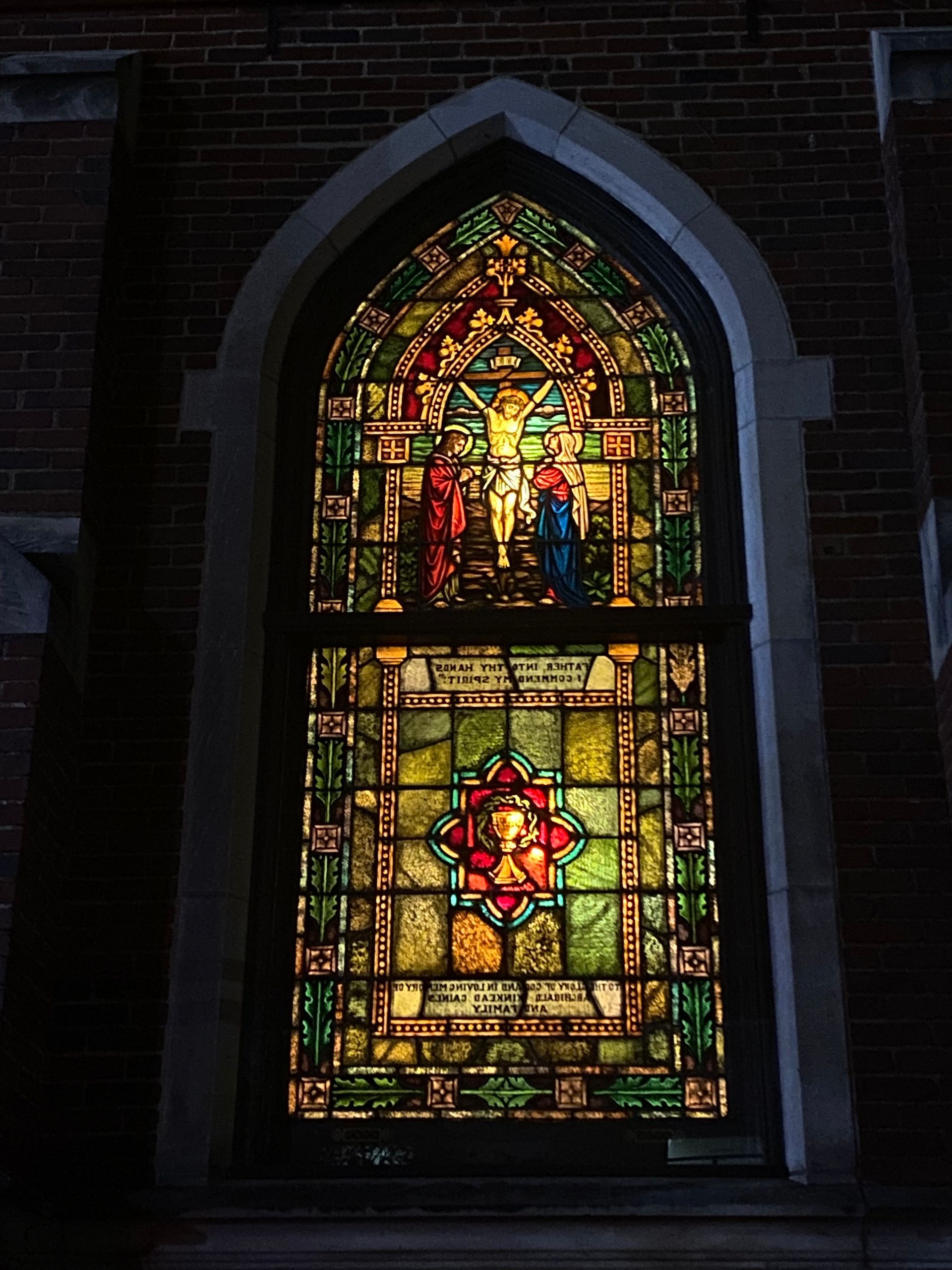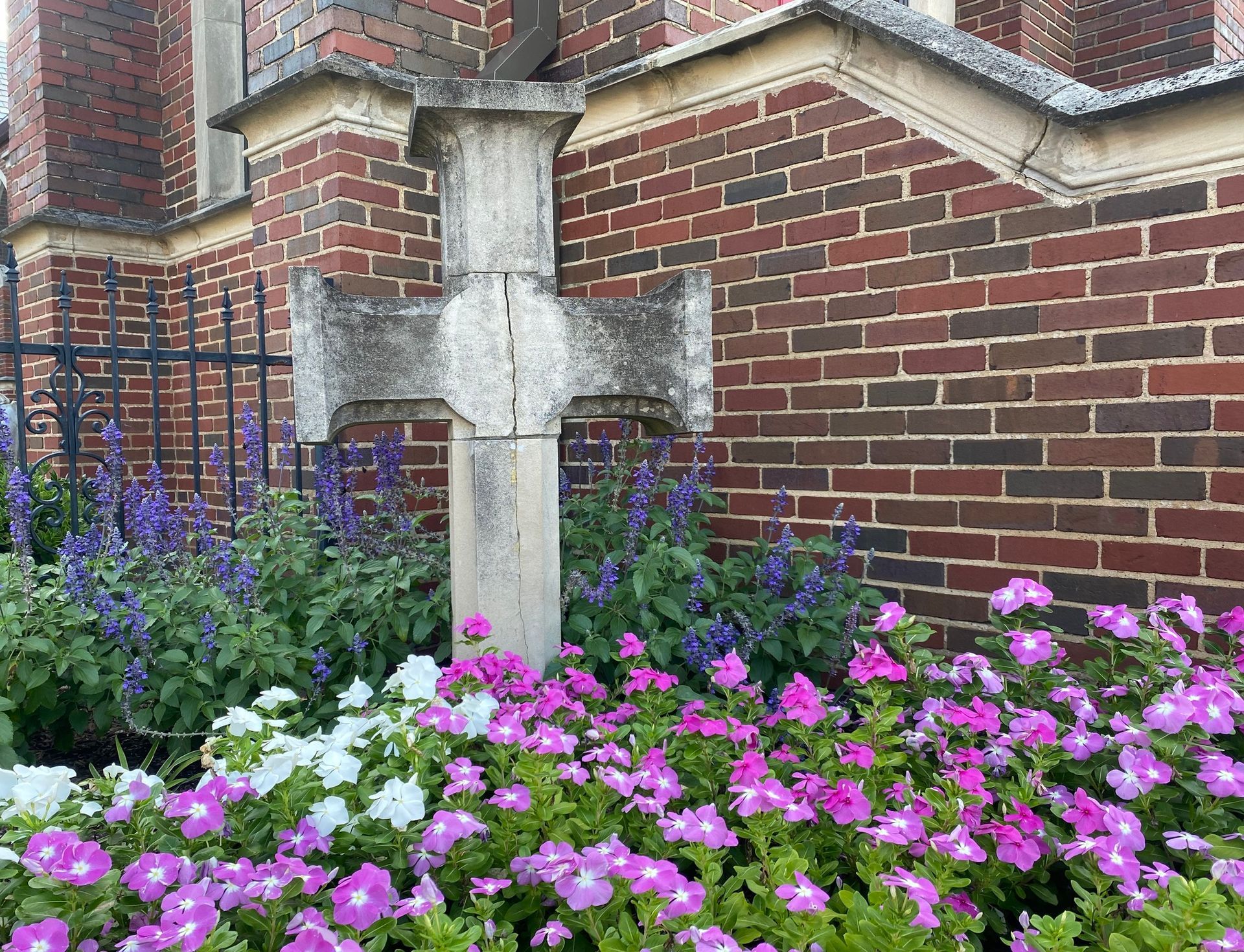St. Nektarios of Aegina
A Modern Saint
Before leaving for Greece, I rewatched the movie "Man of God", which is the story of the life of St. Nektarios of Aegina, Bishop of the Pentapolis. I love, and highly recommend, this moving story of a modern Saint. St. Nektarios has been an important part of my life since my first visit to the Monastery of the Holy Trinity in 2019. I purposefully added an extension to Aegina this year to re-visit this holy site. The icon of St. Nektarios from this monastery, hangs in our home chapel and depicts scenes from his life.
While the film, like all historically based films, does take dramatic license it presents the essentials of his life with great compassion and care, ant in so doing does this great man justice. It begins in Cairo where Nektarios, as a young prelate, is serving as the Metropolitical Bishop of the Pentapolis under the leadership and authority of his spiritual father the Patriarch (Greek) of Alexandria. Nektarios, known, and loved for his devotion, piety, ascetic life, and charity was beloved by the Christians, and Muslims, who comprised the population under his spiritual care. Unfortunately, his godliness made him a threat to the more worldly, and political, prelates and clergy of the Patriarchate. These, having become his enemies, not that he viewed them as such, conspired against him, and determined to slander and defame him to the Patriarch, then in ill-health, lest Nektarios be chosen as the next Patriarch of Alexandria upon the incumbent’s repose. They then proffered these false allegations against him to the Patriarch. (For Episcopalian this would be the equivalent of Title IV charges.)
As a result, Nektarios was dismissed from his see, and he became a religious exile in Greece. Unfortunately, he was not allowed to serve a bishopric in Greece, as he was not a Greek citizen, having been born to a Greek family in what was then the Ottoman Empire. This question of his citizenship was not resolved during his lifetime, and so he was relegated initially to serving as a preacher and then as an instructor at the equivalent of a high school. In this capacity, he continued to maintain his strict devotion and piety, becoming an example to his students. His fame due to his faithfulness, piety, and writings began to spread throughout Greece, and especially to Athens.
In time he was approached by a group of devout women who wished him to become their spiritual father and lend his support to their aims of starting a monastery. They were eventually granted property on the island of Aegina, off the coast of Attica, to begin construction and development of their community. St. Nektarios eventually left the school, and joined in the physical and spiritual labors of the monastery working alongside the new sisters. Despite setbacks, including hostility and criticism, the new monastery flourished under his guidance until his death from prostate cancer in 1920. He was canonized in 1961 by the Ecumenical Patriarch (Constantinople).
Today the Monastery continues to flourish, and a new church dedicated to him as patron is being constructed. Many pilgrims come to this holy site, and there are numerous reports of healing miracles associated with veneration of his relics. Currently, these relics may be venerated in the monastery church, as well as visiting his tomb.
It is said, depending on the source, that it is possible to hear the beating of the saint’s heart, or the tapping of his pastoral staff, if the faithful pilgrim humbly places their ear upon the side or top of his tomb. I know several individuals who have experience this phenomenon, and know that it has moved them to tears and greater devotion (which I believe is the end “goal” of such experiences).
This visit, I was particularly moved when visiting St. Nektarios’ small personal apartment. In the saint’s tiny bedroom, and almost missed, is a statement written on papyrus in 1998, approved by the Synod of Alexandria, and signed by the Greek Patriarch of Alexandria. This document, written 107 years after Nectarios’ began his exile from Cairo, recognizes his sanctity, restored him to his ecclesiastical rank, and beseeches the saint to, “forgive both us, as unworthy as we are, and our predecessors…for the opposition to the Saint and for all which, due to human weakness or error, our Holy Father, Bishop of Pentapolis, Saint Nektarios, suffered.” Seeing a document of this importance, in its original format, so simply framed, and hung where it could be missed moved me to tears. I was moved by this vindication of St. Nektarios composed a full lifetime removed from his death and a century past the beginnings of his sufferings imposed by those opposed to his piety and generosity, and based in, or resulting from, human jealousy, pettiness and the false imaginations of the hearts of those who sought their own glory and position. For in reality, they thought he was like them. All I could think of, viewing this document, was of another person who suffered at the hands of his own brothers because of hatred and the projection of false motives, though this individual was sent into exile to Egypt. When his brothers approached him expecting condemnation, thinking that Joseph was like them, Joseph in turn responded that though they had meant his exile for evil, God intended it for good (Gen. 50:20)
And truly, good did result from St. Nektarios’ work and life in exile.
The lesson, for me, was how St. Nektarios never sought revenge, never criticized those who slandered him, never published articles chastising his accusers or the Patriarch, or even defending himself in public forums. Instead, he prayed for those who persecuted him, he continued to love his spiritual father who succumbed to the slanderous speech and direction of the clergy opposed to St. Nektarios. In short, he lived as Christ did, offering prayers and forgiveness to those who wronged him, and seeking the mercy of God for them and for himself in continual repentance.
In this he is a model for all who have been, or are, slandered by those whom they thought friends, and those who for their own aggrandizement, egos, or who fear their own secret faults to be exposed, seek to disparage, condemn, or slander others without cause. This is particularly true in an age that makes it so easy to do so via “social media” and other on-line gossip forums. For me, this was the chief “take away” from visiting my friend in Christ, “St. Nektarios,” and my prayer is that you and I have the same spirit that was granted to him. It is a lesson many can learn.
St. Nektarios, pray for us.
Fr. Dave Halt



